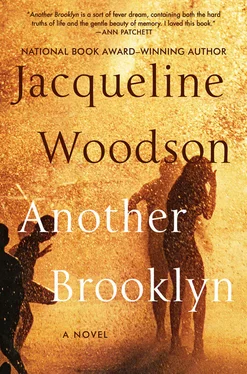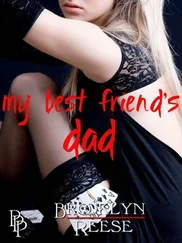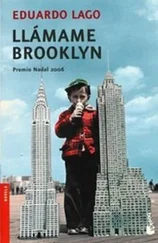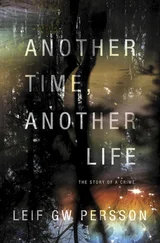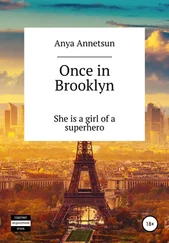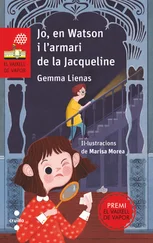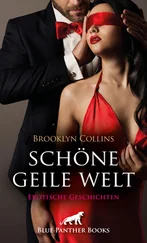Angela’s skin was so light you could see blue veins moving through it. She had seen Josephine Baker and Lena Horne and Twyla Tharp on television. Whenever a good song came on, she swayed like water being poured and we watched her, breath caught in our throats, the sadness in her body so deep we had no idea what it was or what it meant or how it got to be there. She was all muscle and sinew. On Saturday afternoons, she showed up on the block with her Joe Wilson’s School of Dance bag, her black leotard and tights sweaty and smelly inside it. My mom was a dancer, she told us, then quickly grew silent.
Does she still dance, we asked. But Angela turned away from us. Shrugged. Said, Why you have to be all up in my business? Said, Kind of. Said, Damn, why’s it all have to be so complicated, you know? She put her face in Gigi’s hair and shook until she cried. We said, We love you, Angela . We said, You’re so beautiful. Said, Just keep dancing. That’s all.
We tried to understand without asking if Mother plus Dance equals Sadness. We waited for her hands to curl into fists. In Sylvia’s pink bedroom, we lay down and pressed our ears to her thin chest, listening to the quickening of her heart. Angela, what is it? we begged. Tell us. Please, please tell us. We have blades, we said. We can cut somebody.
We had blades inside our kneesocks and were growing our nails long. We were learning to walk the Brooklyn streets as though we had always belonged to them — our voices loud, our laughter even louder.
But Brooklyn had longer nails and sharper blades. Any strung-out soldier or ashy-kneed, hungry child could have told us this.

I wanted to step inside of Sylvia’s skin. Beneath the sweet copper, there lived something diamonded over, brilliant. When we walked, Angela, Gigi, and I vied to be the ones whose arms brushed Sylvia’s. When she reached for a hand, ours shot out, lacing our fingers desperately into hers. She was sloe-eyed and wide-mouthed, a beauty that could have just as easily not been so. But hers was all straight teeth and full lips, all green eyed and new. Long before we were teenagers, her voice was deep, graveled, a woman’s voice on a young girl. Still, it wasn’t the skin or the eyes or the voice I wanted. I simply wanted to be Sylvia, to walk through the world as she did, watch the world through her eyes. Is that girl laughing at us, my brother had asked that first time. And now I knew Sylvia was laughing at us, because she was laughing at everyone. The same way she had laughed when her father said We’re going to America, his broken English a joke to her, a puppet’s mouth moving over newly learned words. Forever .
What’s with America, she asked him. This America thing you keep talking and talking about .
At four, Sylvia was reading books assigned to her eight-year-old sister. At five, she was made to stay after school with ten-year-olds, cracking codes in long division, searching Latin word origins. While her father quoted French philosophers, Sylvia stood in front of her dolls, asking her unblinking jury if they could look into the heart of her client and see the innocence there.
My father said study law first, Sylvia told us. Then everything I love can follow that.
When we asked, What do you love? Sylvia looked around her perfectly pink room and said, I’m not the boss of me. How the hell would I even know.

Maybe this is how it happened first for everyone — adults promising us their own failed futures. I was bright enough to teach, my father said, even as my dream of stepping into Sylvia’s skin included one day being a lawyer. Angela’s mom had draped the dream of dancing over her. And Gigi, able to imitate every one of us, could step inside anyone she wanted to be, close her eyes, and be gone. Close her eyes and be anywhere.
In 1968, the children of Biafra were starving. My brother was not yet born and I was too young to understand what it meant to be a child, to be Biafran, to starve. Biafra was a country that lived only inside my mother’s admonitions— Eat your peas, there are children starving in Biafra— and in the empty-eyed, brown, big-bellied children moving across my parents’ television screen. But long after Biafra melted back into Nigeria, the country from which it had fought so hard to secede, the faces and swollen bellies of those children haunted me. In a pile of old magazines my father kept on our kitchen table in Brooklyn, I found a copy of Life with two genderless children on the cover and the words STARVING CHILDREN OF BIAFRA WAR blared across the ragged white garment of the taller child.
How do we dream ourselves out of this?
I stared at the cover of Life . The children’s distrusting eyes stared back at me, too large for their small, brown heads, too small for their protruding bones and distended bellies. My mother hadn’t lied. There were indeed children suffering. Here was proof. Here they were on the cover of Life magazine. I spent hours stroking their nearly bald heads, running my fingers across their almost beatific faces. If angels truly existed, I thought, they had come to earth as Biafran children, haunting and only halfway here.
No, we were not poor like this. Our bellies were filled and taut. Our legs were thin but muscled. Our hair was oiled, clean.
But still.

One day a woman wearing a sky-blue skirt suit showed up in front of our building. She had two small children with her, dark brown like Jennie and younger than my brother, who had just turned eight. My babies, we heard Jennie yell as she ran down the stairs. Ay, Dios mío, mis niños han llegado a casa. When the woman left again, Jennie knocked on our door. Please watch them, she whispered. I go get food .
The children were tiny and silent, staring up at my brother and me with huge dark eyes. The girl might have been four and the boy not yet two. The girl wore a frilly pink dress, too short and too small. Her shoes were white patent leather. Her feet, sockless. The boy wore a T-shirt and pair of cutoff shorts, a diaper bulging beneath. His white high-top leather baby-shoes had the front cut out to expose his small overhanging toes. I pulled them into our apartment and relocked the door. After a few moments had passed, both started crying. My brother fed them from his bag of potato chips, which they devoured hungrily. We gave them apples and nuts, slices of bologna and Jell-O. Whatever we put in front of them, they ate.
Hours passed. When Jennie finally returned, she was sleepy-eyed, scratching at her arms and legs, her wig at a strange angle. We watched her enter our building, waited for her to come up to our floor. After a long while, we took the children down to her apartment, watched her take them inside absently and close the door. Later, through the floorboards, we could hear them crying.
I went over to our radio, turned the dial until music rose up above every other sound.
That year, every song was telling some part of our story. We crowded around the small radio in Sylvia’s room and listened. When Gigi’s mother wasn’t home, we went there after school, waited while Gigi used the key that hung from her neck to unlock the door. There was no couch in the one-room kitchenette, so we sat on the floor around her Close’N Play record player — the volume turned down low. We leaned in to listen as Al Green begged us to lay our heads upon his pillow and Tavares asked us to please remember what they told us to forget. And Minnie Riperton and Sylvia hit notes so high and long, it felt like the world was ending.
Читать дальше
